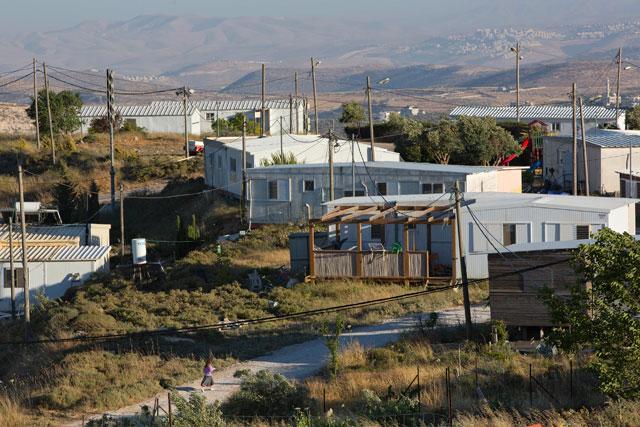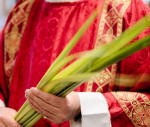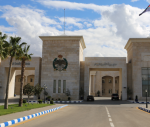You are here
Palestinians condemn Israeli bill to legalise settler units
By AFP - Nov 14,2016 - Last updated at Nov 14,2016

In this May 18 file photo, Amona, an unauthorised Israeli outpost in the West Bank, is seen east of the Palestinian town of Ramallah (AP photo)
RAMALLAH —Palestinian leaders on Monday denounced an Israeli bill to legalise several thousand Jewish settler units in the occupied West Bank, vowing to take up the issue at the UN Security Council.
They also sharply criticised a separate bill that would limit the volume of calls to prayers at mosques in Israel and Occupied Jerusalem, a measure government watchdogs have called a threat to freedom of religion and a provocation.
A committee of Israeli ministers adopted the two bills on Sunday, though they must still be approved by parliament.
The settler bill had been pushed forward by Education Minister Naftali Bennett of the hardline Jewish Home Party.
Bennett last week called for an end to the idea of a Palestinian state after Donald's Trump's presidential election win in the United States.
"The recent Israeli measures are going to lead to catastrophe in the region," said Nabil Abu Rudeina, spokesman for Palestinian President Mahmoud Abbas.
"The Palestinian leadership will turn to the UN Security Council and all other international organisations to stop those Israeli measures".
Palestinian Foreign Minister Riad Al Malki accused the Israeli government of seeking to “impose facts on the ground and create new realities by legalising the illegal actions that it commits”.
UN Middle East Envoy Nickolay Mladenov said that the settlements bill and other such issues were “further pouring oil onto the fire”.
The bill to legalise Israeli homes in the West Bank was pushed through the committee despite opposition from Prime Minister Benjamin Netanyahu.
It was drafted in response to a court order requiring the Israeli outpost of Amona, which includes about 40 families, to be evacuated by December 25 because it was built on private Palestinian land.
On Monday, the Israeli high court rejected a government bid to delay the evacuation by seven months.
Netanyahu had feared the bill could jeopardise the government’s case.
‘Unique opportunity’
He is also concerned it could provoke an international backlash and possibly encourage US President Barack Obama to seek a Security Council resolution on the Israeli-Palestinian conflict before he leaves office on January 20.
The bill would allow for the legalisation of settlements built on private Palestinian land in communities that meet certain criteria.
The Palestinian landowners would be offered compensation in return for the land being seized.
The bill is expected to apply to between 2,000 and 3,000 settlement units in the West Bank.
Bennett said Monday: “The combination of the changes in the United States, in Europe and the region provide Israel with a unique opportunity to reset and rethink everything.
“It’s no secret that I think that the notion of setting up a Palestine in the heart of Israel is a profound mistake,” he said, referring to the West Bank.
The international community considers all Israeli settlements in Israeli-occupied East Jerusalem and the occupied West Bank to be illegal, whether they are authorised by the government or not.
The government differentiates between those it has approved and those it has not. Settlements like Amona are considered outposts as they have not been given Israeli government approval.
Settlements are seen as a major stumbling block to peace efforts as they are built on land the Palestinians see as part of their future state.
Related Articles
OCCUPIED JERUSALEM — Israel Prime Minister Benjamin Netanyahu closed in on a deal with a key rival Monday that could lead to approval of con
OCCUPIED JERUSALEM — Israel's ministerial committee for legislation on Sunday approved a draft bill aimed at legalising wildcat Jewish settl
OCCUPIED JERUSALEM — Israeli far-right politicians on Tuesday welcomed initial approval of a bill to legalise some 4,000 settler housing uni
















